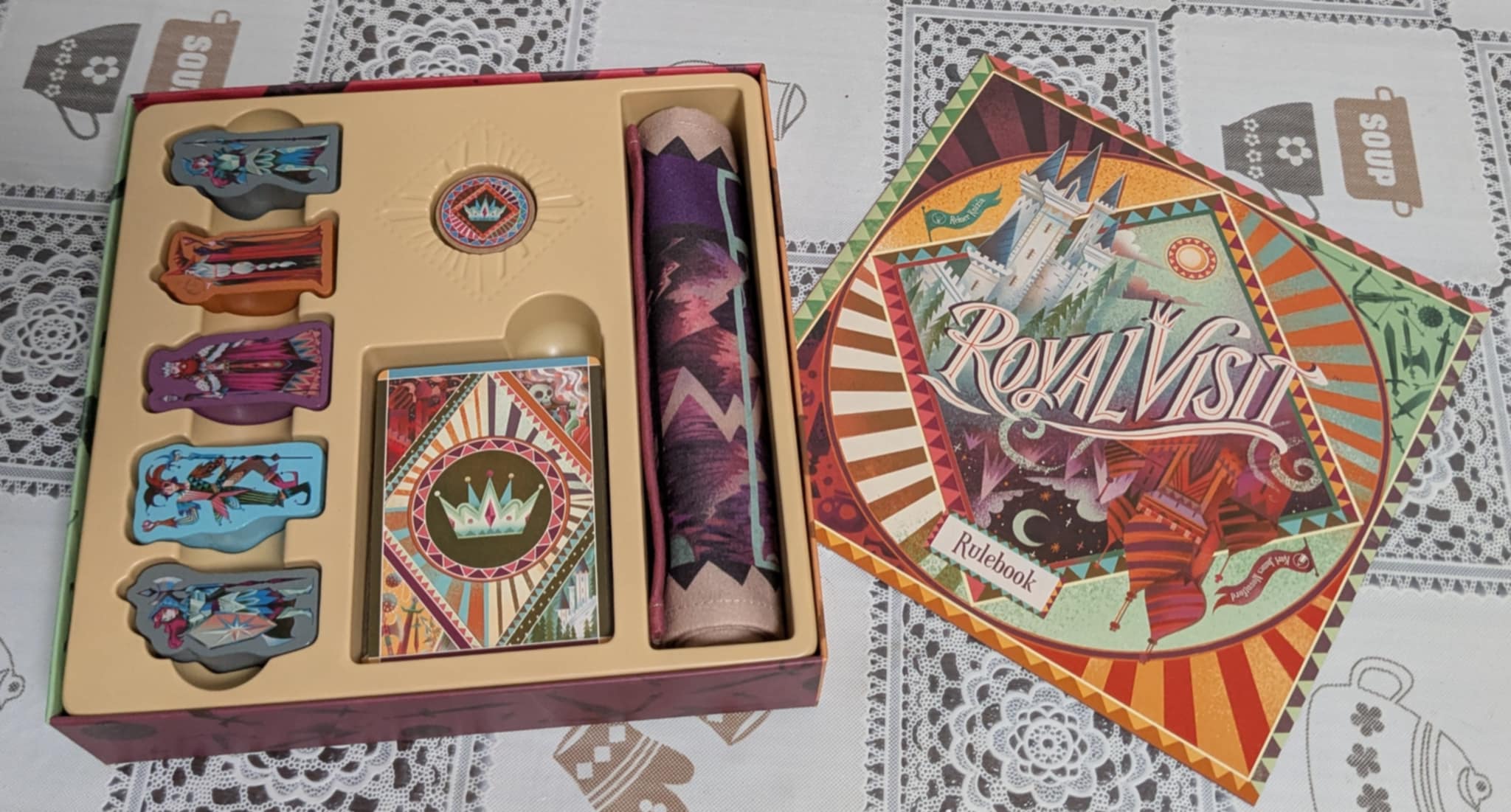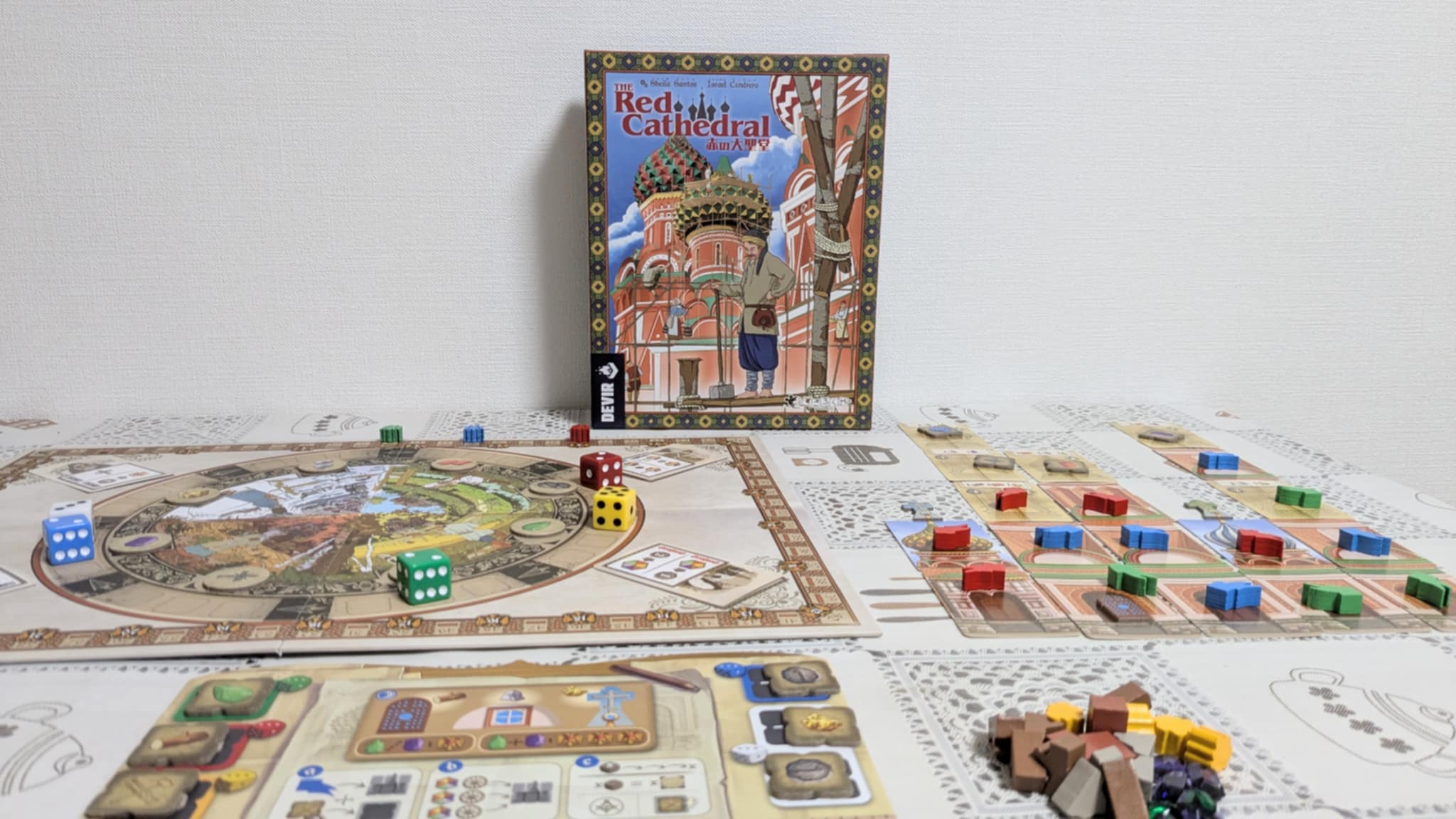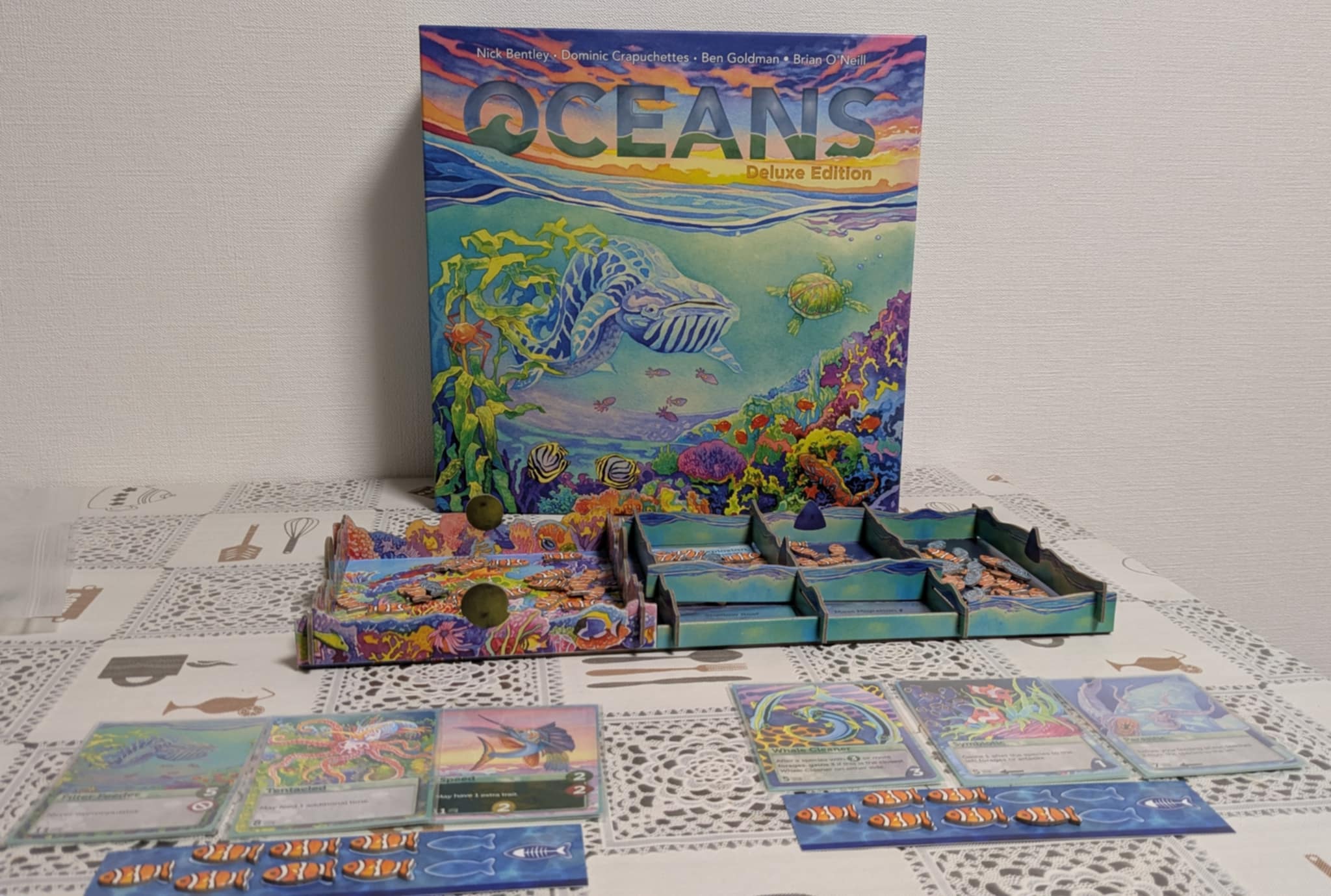Quiet Board Games for Small Apartments
Board games are one of the best things you can own—small boxes, big fun. But as any apartment-dweller knows, sometimes that fun gets a little too loud. One moment you’re winning a tense round, the next your neighbor’s knocking, holding a broom like it’s an eviction notice. Don’t worry—I’ve got you covered. As a professional board game curator who lives in a small Japanese apartment, I specialize in games that keep things quiet while keeping the excitement high. So, if you’re looking for quiet board games for playing in small apartments, these picks deliver big fun in small spaces—no shouting required.
Quick picks
Regicide – The Royal Battle That Lives in Your Junk Drawer
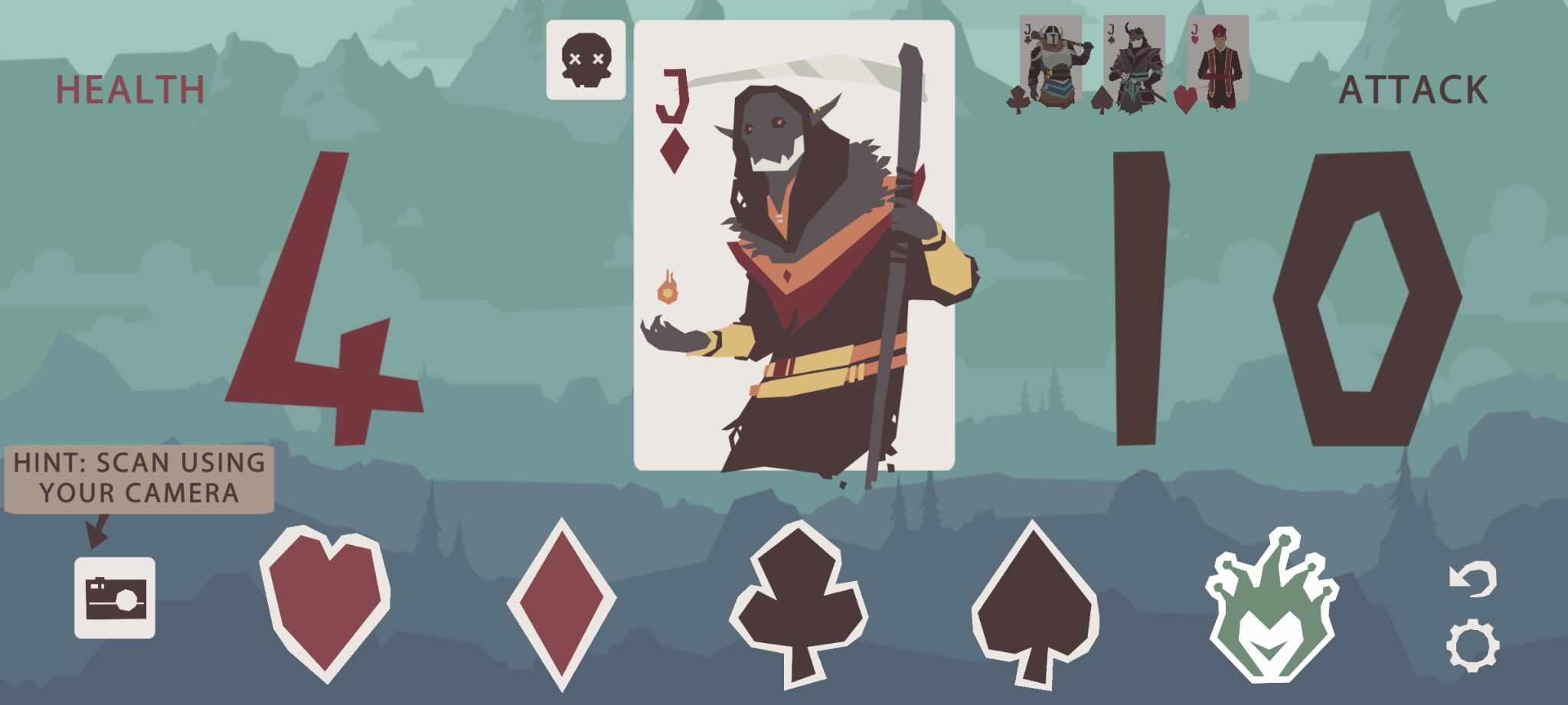
If you’re looking for quiet board games for playing in small apartments, Regicide might already be sitting in your kitchen drawer—masquerading as a regular ol’ 52-card deck. But don’t let the humble appearance fool you. This clever little co-op game is a masterpiece of minimalist design that packs more punch than some games five times its size (and price).
In Regicide, you and your fellow players face off against a gauntlet of royal enemies—Jacks, Queens, and Kings—each tougher than the last. You’ll use cards from your hand to deal damage and defend yourself, while also harnessing the unique powers of each suit. Clubs double damage, Spades give you shields, Hearts restore the deck, and Diamonds refill your hand. However, the royalty you’re fighting will cancel the power of any matching suit—so planning your moves takes real brainpower.
Oh, and did I mention? You’re not allowed to talk. That’s right. Regicide is a non-verbal cooperative game, making it ideal for quiet board games apartment life. You’ll be sweating over your next move, throwing side-eye at your teammate, and silently begging them to play that Diamond when you only have 2 cards left. Trust me—it’s tense, fun, and almost suspiciously quiet.
The game has a tiny footprint, needs no special components beyond a regular deck (though a dedicated version is available if you want to be fancy), and even comes with a slick companion app to help track health and progress. It’s portable, it’s smart, and it’s practically silent.
So if you’re hunting for strategic gameplay that won’t earn a noise complaint, Regicide is a royal pick.
The Crew – Quietly Exploring the Galaxy (or the Ocean)
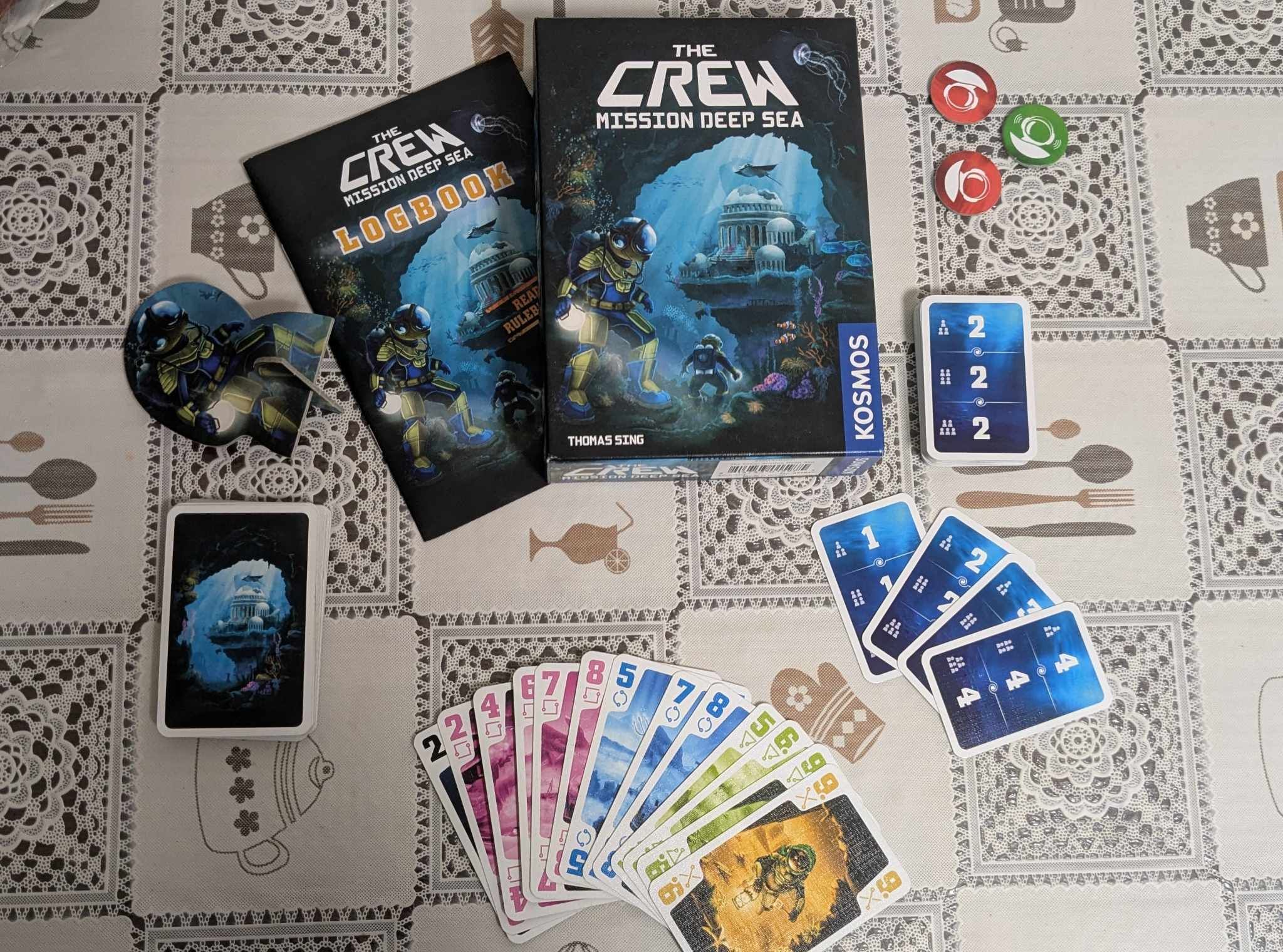
Get The Space Crew on Amazon! Get The Wet Crew on Amazon!
If you’re on the hunt for quiet board games for playing in small apartments, The Crew is a mission control-level recommendation. This small-box co-op masterpiece turns the classic trick-taking card mechanic into an intense, non-verbal space (or sea) adventure that somehow keeps things dead silent and wildly engaging.
In The Crew, you and your fellow players work together to complete a series of increasingly tricky missions. But here’s the twist: you can’t just talk about your hands or your strategy. Instead, you’re forced to rely on the language of trick-taking—reading the cards that are played, inferring intentions, and maybe, just maybe, praying your partner understands your subtle card drop as a desperate cry for help.
Each player gets one limited-use communication token per round, which allows them to reveal just one piece of information about a card in their hand. That’s it. The rest? Pure intuition. It’s tense. It’s clever. And it feels like solving a puzzle as a team—without anyone ever raising their voice. Ideal, of course, for quiet board games apartment living.
The Crew also features a campaign-style mission structure that slowly ramps up the challenge and keeps the game feeling fresh. For newer players, Planet Nine is a great introduction (though it’s a tad fiddlier). For seasoned trick-takers, Mission Deep Sea streamlines the experience without losing its heart. Either way, The Crew proves you don’t need loud laughs or flashy pieces to have a memorable game night.
Sky Team – Silent Piloting for Strategic Souls
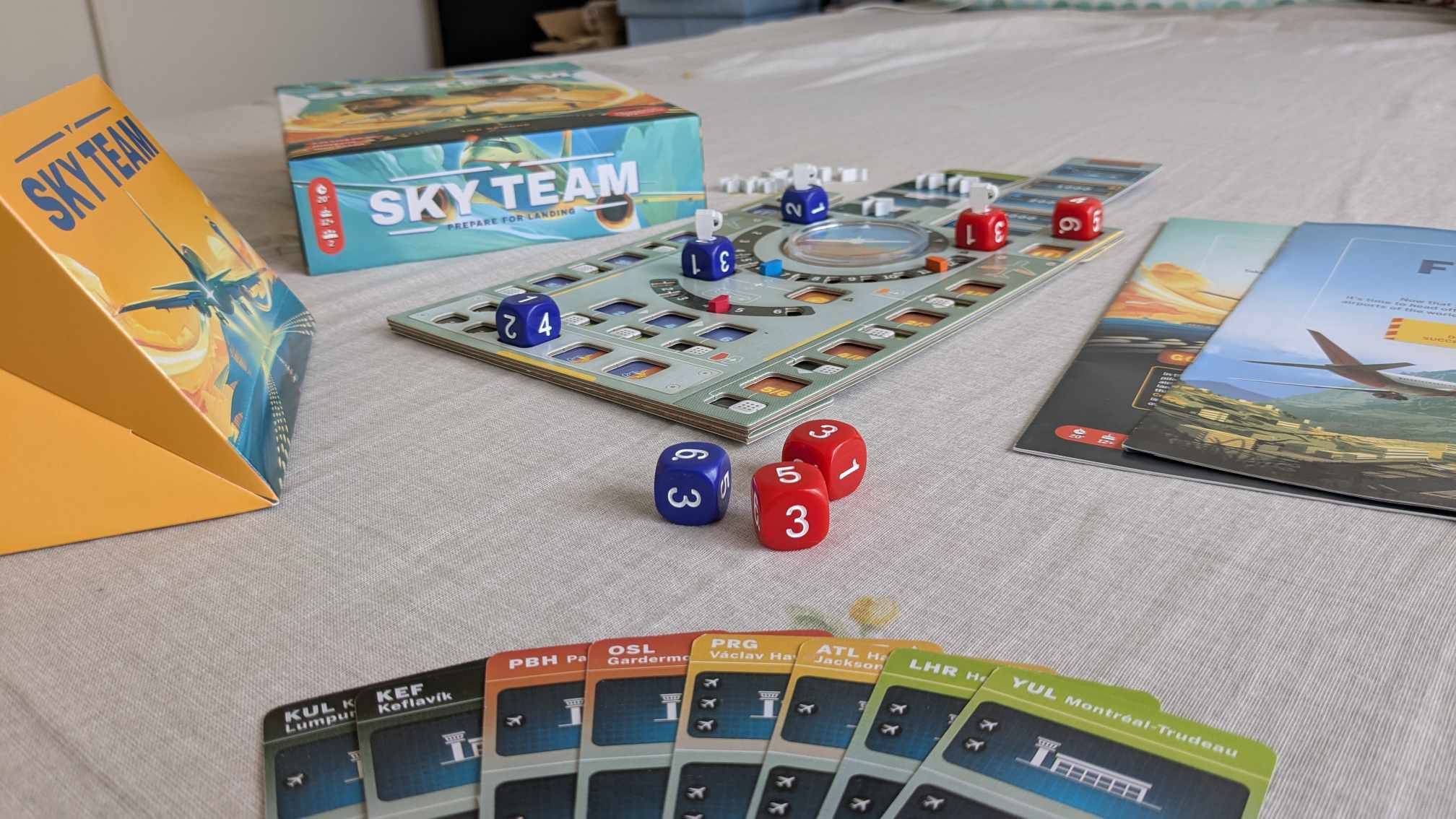
Sky Team is what happens when you take a two-player flight simulator, strip out the chaos, and replace it with quiet panic and subtle teamwork. If you’re browsing for quiet board games for playing in small apartments, this one soars to the top—pun fully intended.
You and your partner are co-pilots trying to land an airplane. Each round begins with a roll of dice, and then you’ll take turns placing those dice on shared cockpit controls. Adjust the plane’s pitch, manage engine speed, lower the landing gear, and—perhaps most importantly—make coffee. Yes, caffeinating your partner is a legitimate in-game action.
What makes Sky Team especially brilliant is its enforced silence. You can’t talk during the round, just like real-world pilots focused on critical tasks. Instead, your dice placements become the only way to communicate. That 6 in the coffee slot? Probably a signal that your partner’s other dice are high, and they’re depending on you to handle the fine adjustments.
This restriction leads to delightful “aha!” moments and hilarious “wait, what were you thinking?” post-game debriefs. And thanks to its dedicated two-player design, the game feels perfectly tuned for intimate teamwork—not something all co-ops manage.
As you progress through Sky Team’s mission-based campaign, the game slowly ramps up in complexity, introducing new challenges and keeping the experience fresh without increasing noise levels. It’s one of those games that pulls you in with theme, then hooks you with clever mechanics.
If you want a co-op game with a compact footprint, tons of tension, and zero need for loud discussions, Sky Team is a standout. Quiet? Absolutely. Boring? Not a chance. This is a cockpit built for two, and it belongs in every quiet board games apartment collection.
Lost Cities – The Art of Silent Tension
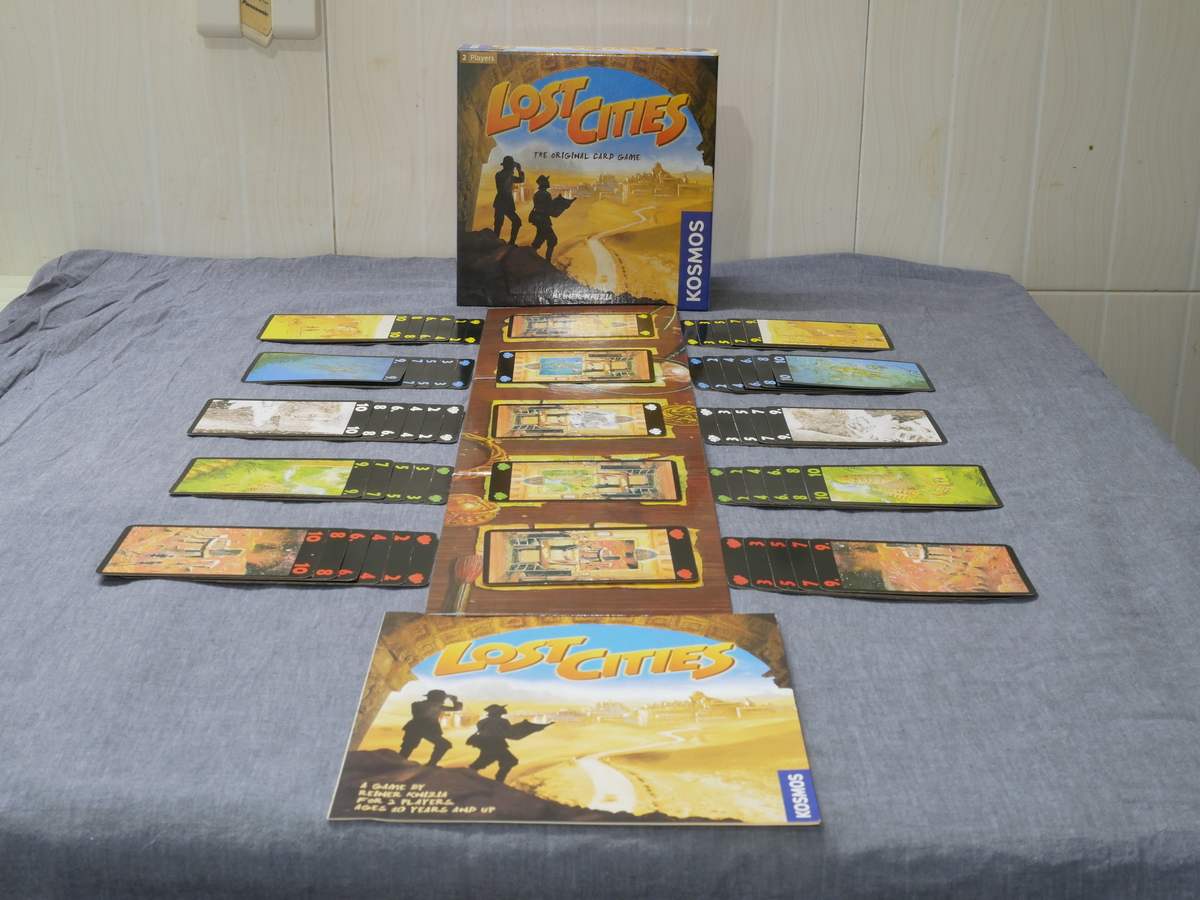
Few games capture the essence of focused, silent intensity quite like Lost Cities. If you and your partner are seeking quiet board games for playing in small apartments that don’t skimp on suspense, this minimalist card game might just be your perfect expedition.
On the surface, Lost Cities is incredibly simple: draw a card, play a card. That’s it. But beneath this simplicity lies a deliciously stressful puzzle that will have you both locked in, barely blinking. Each player is building expeditions in five different colors, playing cards in ascending order. But once you commit to a color, there’s no turning back.
The game’s brilliance comes from its tight hand limit and clever use of push-your-luck tension. You’ll often find yourself staring at your hand, mentally calculating what your partner might be hoarding. Should you play that yellow 5 and hope for the 3 and 4 later, or wait and risk losing your momentum entirely?
What makes Lost Cities particularly perfect for apartment living is how quietly intense it is. There’s no talking required, no dramatic reveals, no dice to roll. Just pure, clean card play, filled with strategic head games and subtle reads. You’ll find yourself silently trying to outmaneuver your opponent while also respecting their game—and maybe secretly plotting how to sabotage it.
It’s a tight two-player experience that’s ideal for small spaces, requiring nothing more than a modest table and your full attention. So if you’re craving a quiet game with just the right dose of drama, Lost Cities will transport you to thrilling, tension-filled terrain.
Want to know more about Lost Cities? Read our Lost Cities review here.
Patchwork – Quiet, Cozy, and Cleverly Competitive
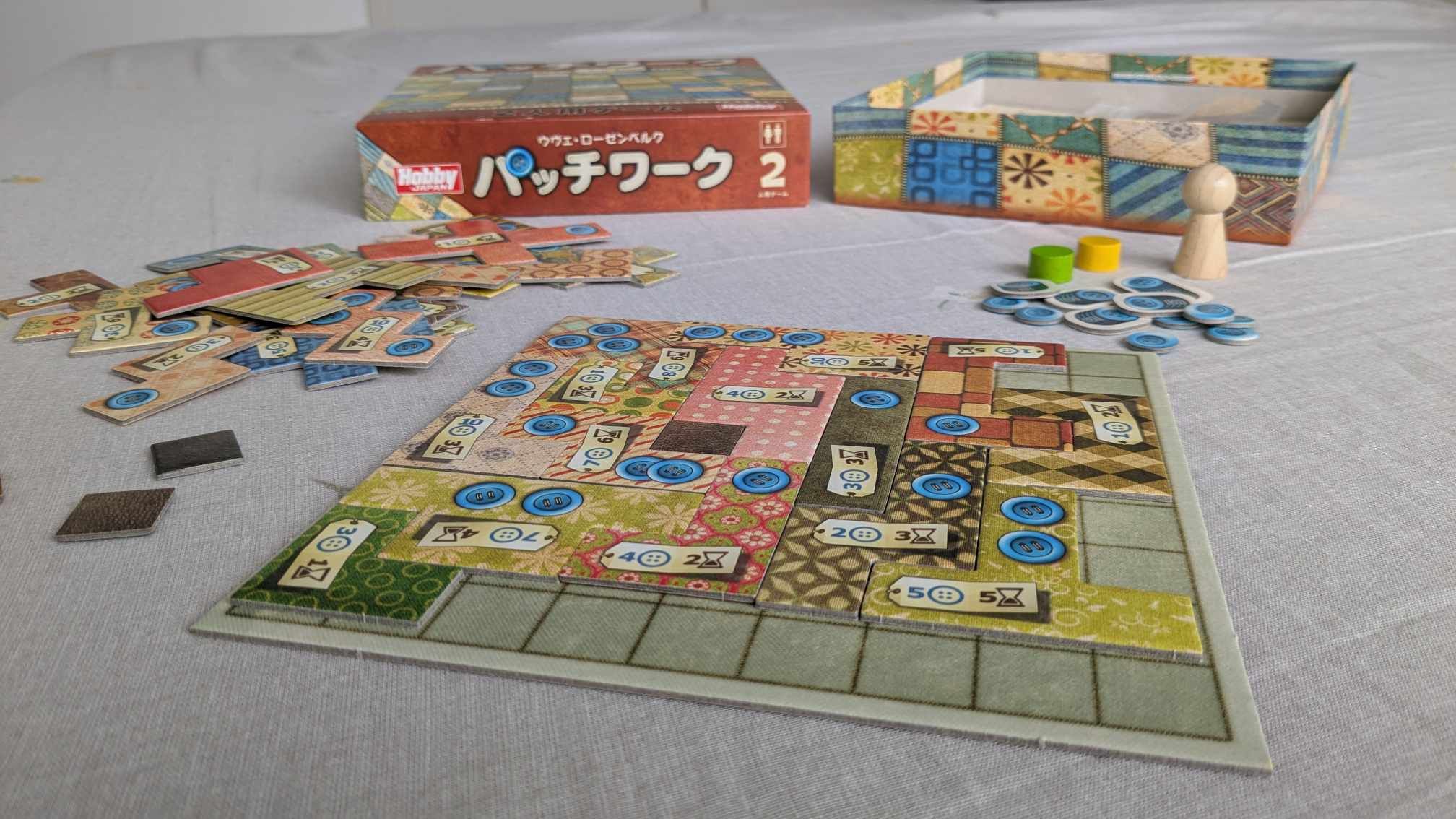
If your ideal game night includes a cup of tea, soft lighting, and zero noise complaints, Patchwork is the kind of quiet competition that fits perfectly in your life—and your apartment. Among all the quiet board games for playing in small apartments, few offer the same blend of calm aesthetics and satisfying strategy.
The premise is adorable: you and your partner are quilting. Not literally, of course, but through a puzzle of tile placement and button budgeting. On your turn, you choose from an array of oddly shaped fabric pieces, pay for them with cute button tokens, and try to fit them onto your personal board like a patchwork Tetris. The satisfaction of landing the perfect piece into an awkward gap? Immaculate.
But don’t be fooled by the cozy theme—Patchwork is sneakily competitive. Time is a resource, and taking a big fancy patch means you move further along the time track, potentially giving your partner multiple turns in a row. Some pieces are cheap and cover a lot of space, but they’re clunky to fit. Others are expensive but oh-so-satisfying when placed just right.
This balance of spatial puzzle and resource management makes every move feel meaningful, yet the gameplay stays relaxed and entirely non-disruptive. No shouting, no dice, no sudden twists—just the peaceful joy of out-quilting your opponent.
It’s also wonderfully compact, making it a true star in the quiet board games apartment category. With a small footprint and a short playtime, Patchwork is the kind of game you can pull out for a cozy weeknight match or a slow Sunday morning. In short, it’s patch-perfect for small-space strategists.
Want to know more about Patchwork? Read our Patchwork review here.
Oh My Goods! – Tiny Box, Giant Brain Burn
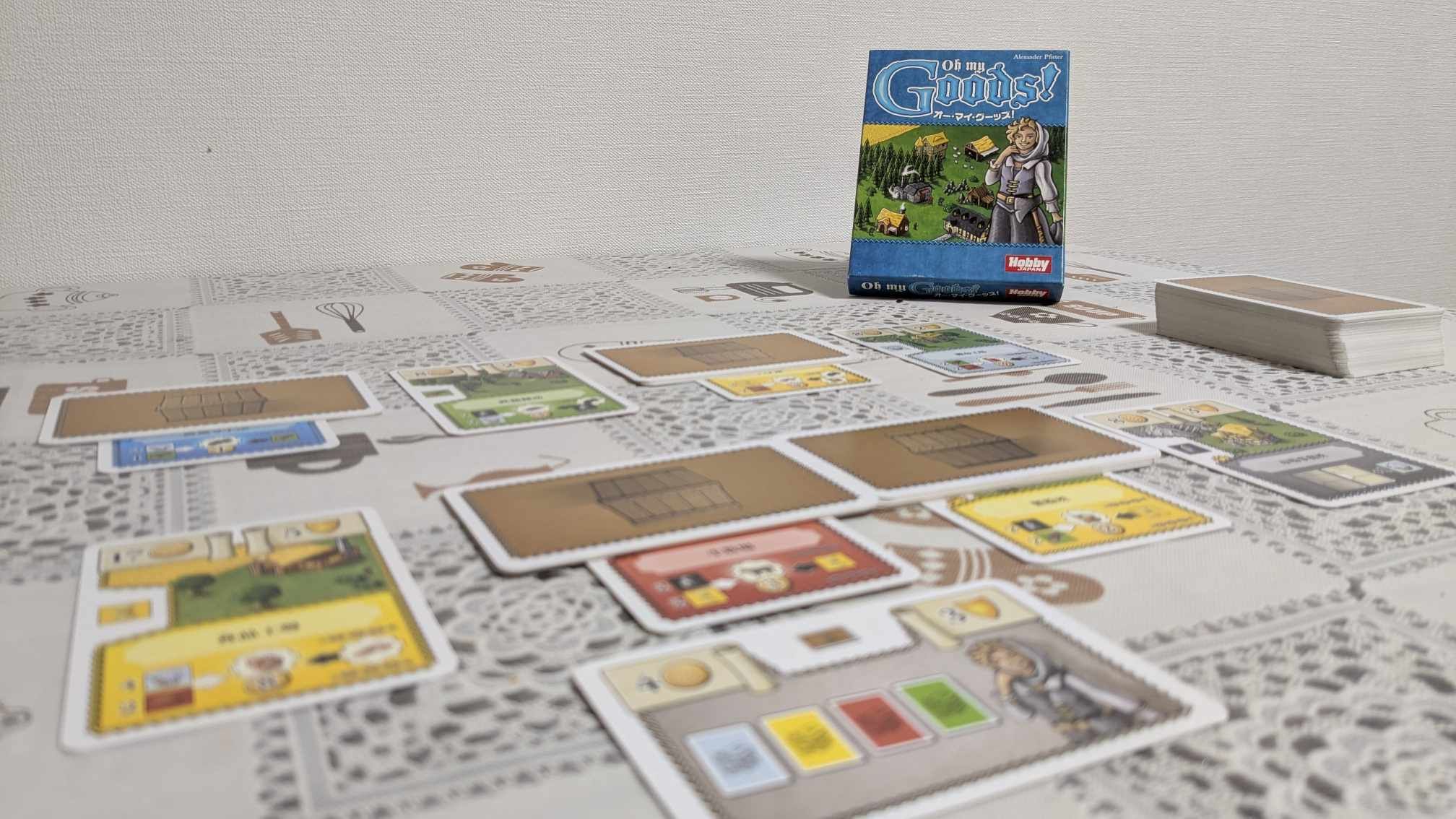
Get Oh My Goods on Amazon!
If you love economic engines and quiet, head-down puzzling, Oh My Goods! is the kind of underrated gem that deserves a spot in your small-space collection. Designed by Alexander Pfister (yes, the mind behind Great Western Trail), this clever card game packs a ton of depth into a deck no bigger than a paperback novel—making it ideal for fans of quiet board games for playing in small apartments.
At first glance, Oh My Goods! looks unassuming. But don’t let the small size or simple illustrations fool you—this game is all about building an efficient village economy through multi-use cards and smart planning. Each card in your hand is a building you can construct, a good you can store, and a resource you can use. That’s three functions, one card. It’s like economic origami.
Every round, a few resource cards are flipped face-up in the center, and players simultaneously choose which building they’ll try to produce with. Production gives you goods, which can be stored—or, more satisfyingly, used to trigger a chain production effect. This is where Oh My Goods! shines. You’re building up for one glorious combo chain, where wheat becomes flour, then bread, then wine. You basically run your village like a quiet artisan factory—with style.
And because there’s essentially no player interaction, you and your partner can sit side by side in your small apartment, silently calculating and quietly upgrading. No shouting, no competition over shared resources, just a deeply satisfying race to build the most optimized production line. Oh My Goods! is a smart little powerhouse with a very small footprint.
Want to know more about Oh My Goods!? Read our Oh My Goods! review here.
Isle of Skye – Price Tags, Tactics, and Tranquility
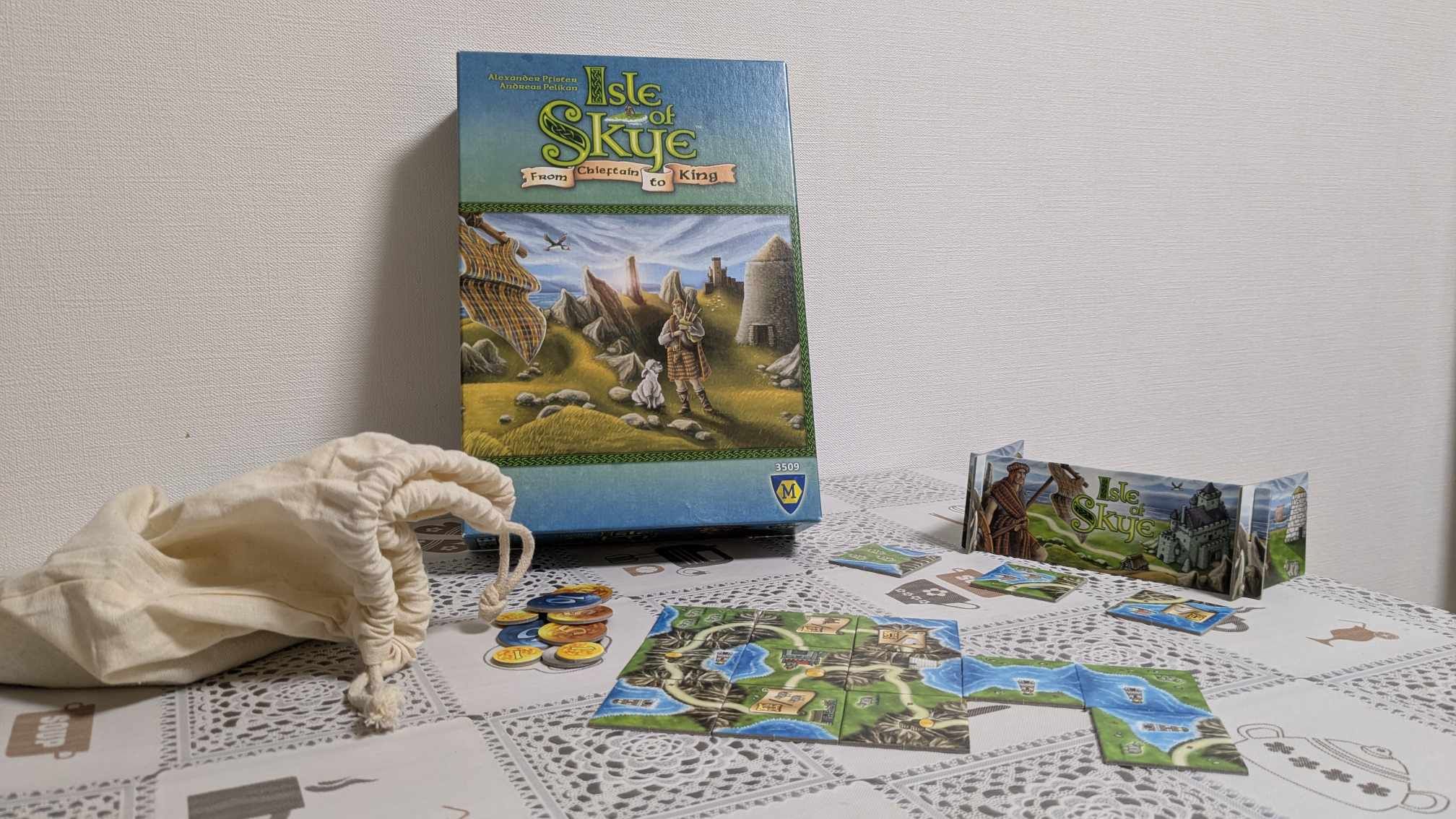
Last but absolutely not least, Isle of Skye offers a delightful blend of tile-laying, economic bluffing, and peaceful kingdom-building that makes it a standout pick for quiet board games for playing in small apartments. Designed once again by the ever-brilliant Alexander Pfister, this game gives you the joy of creating your own little landscape—while gently outwitting your partner on the open market.
The premise is simple: each round, you draw three landscape tiles and secretly assign prices to two of them discarding the third. Your opponent can then choose to buy one of your tiles (or not), and you do the same with theirs. The catch? If no one buys your tile, you have to buy it at the price you set. High risk, high reward—or high regret.
This pricing tension is the heart of the game. You’ll spend much of your time eyeballing your opponent’s tableau and trying to guess what they need. Is that mountain tile worth five gold to them? Seven? Do they want it, or are they just pretending? Meanwhile, you’re building out your own territory, working toward rotating scoring objectives that reward clever planning and adaptability.
Despite the auction element, Isle of Skye remains a remarkably serene experience. Turns are short, decisions are thoughtful, and the overall vibe is strategic without being confrontational. There’s no shouting or chaotic take-that moments—just quietly cutthroat commerce in kilts.
Best of all, the game fits perfectly on a modest table and stores in a small box, ideal for quiet board games apartment life. So if you want a game where you can sip tea, build a kingdom, and second-guess every price you set, Isle of Skye is a peaceful powerhouse worth every penny—assuming someone actually buys that tile.
Conclusion
Living in a small apartment doesn’t mean sacrificing big board game fun. These quiet board games for playing in small apartments offer deep strategy, engaging gameplay, and low noise levels—perfect for late-night sessions or close quarters. Each of these titles proves that great board games don’t need to be loud or take up much space to deliver a fun and satisfying experience. So clear a bit of table space, keep your voices low, and let the cardboard adventures begin. Have a favorite quiet game of your own? Let me know—I’m always curating!
Ready to Build Your Game Shelf?
Here are all the games mentioned in this post:

